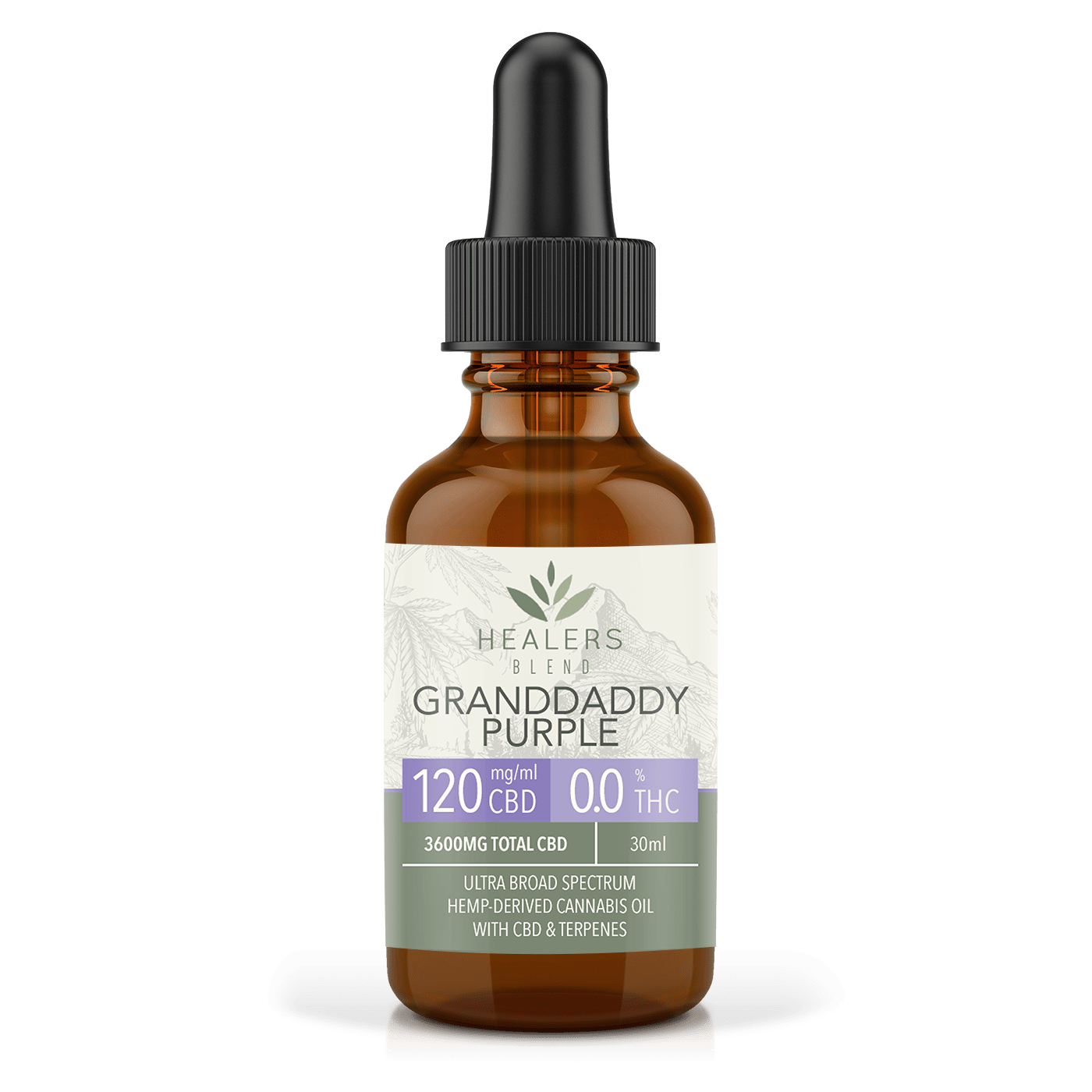Welcome to the Healers Blend Learning Lab! The information in these pages are designed for both the general consumer, as well as, health and medical practitioners seeking to expand their working knowledge of cannabis and the potential of cannabinoid based therapies. While we work to ensure the information in these pages and resources is accurate and up to date, we do not make any claims as to the veracity or totality of the information contained herein. Research into cannabis as medicine is ongoing and our understanding of its many potential benefits continues to grow everyday. Our hope is that you will find this information beneficial and inspiring in your own search to better understand the potential of this incredible plant to increase overall health, vitality, and well-being. CBD products are not approved by the FDA for the diagnosis, cure, mitigation, treatment, or prevention of any disease. We are restricted from making any claims about the efficacy of our specific CBD products to treat or cure any disease or medical conditions. You should always seek the advice of a physician before adding nutritional supplements to your diet. The following information is presented for educational purposes only. Healers Blend provides this information to provide an understanding of the potential applications of cannabidiol. Links to third party websites do not constitute an endorsement of these organizations by Healers Blend and none should be inferred.
CBD Oil for Epilepsy
Research on CBD Oil for Epilepsy – Seizures in the recent past has been sufficient to bring about a significant development in the pharmaceutical world as of late. In June, 2018 the U.S. Food and Drug Administration (FDA) approved Epidiolex (cannabidiol) for the treatment of two rare and severe forms of epilepsy, Lennox-Gastaut syndrome and Dravet syndrome.1 (https://www.fda.gov/newsevents/newsroom/pressannouncements/ucm611046.htm)
Epidiolex – purified CBD extracted from marijuana – is currently available as a prescription drug in the United States. The anti-convulsant effects of CBD are not confined to these rare forms of epilepsy, however, and the fact that CBD has been approved by the FDA to treat any seizure disorders is an indication of its promise in this area of medicine. For a full list of the medical conditions for which CBD may be useful, please consult our research page.
What we know about CBD Oil & Epilepsy
The mechanisms by which CBD oil may reduce the frequency and severity of seizures are unclear. Initial investigations speculated that cannabinoid receptors (i.e. CB1 and CB2 receptors) were involved. More recent investigations suggest the mechanism may involve non-cannabinoid receptors, or may not involve receptors at all.2 (https://www.ncbi.nlm.nih.gov/pmc/articles/PMC5767492/)
Generally speaking, phyto and endocannabinoids are powerful regulators of neurological activity in the brain. The ECS protects the nervous system from hyperactivity during seizure events (Learn more about the endocannabinoid system).3 Endocannabinoids are produced during seizures and inhibit glutamate, an excitatory neurotransmitter, thus dampening seizure activity and reducing nerve cell death.4 (https://www.ncbi.nlm.nih.gov/pmc/articles/PMC4189640/) Phytocannabinoids are generally anticonvulsant and have been referred to as “circuit breakers” because of their ability to reduce seizures and corresponding neurodegeneration.3,4 (https://www.ncbi.nlm.nih.gov/pubmed/18776886, https://www.ncbi.nlm.nih.gov/pmc/articles/PMC4189640)
The evidence base supporting the anti-convulsant effects of CBD oil is diverse and increasingly compelling. It ranges from anecdotal and observational reports by patient and healthcare providers5 (https://www.ncbi.nlm.nih.gov/pubmed/25845492) to pre-clinical studies involving animals to randomized controlled trials involving humans.6 (https://www.ncbi.nlm.nih.gov/pubmed/24854329) Two open-label studies and one double-blind, placebo-controlled trial showed meaningful reductions in seizure frequency and severity, specifically seizures associated with Dravet and Lennox-Gastaut syndromes (Median seizure frequency decreased by 40% in one of the open-label studies7 (https://www.ncbi.nlm.nih.gov/pubmed/26724101) and 53% in the placebo-controlled trial).8 (https://www.ncbi.nlm.nih.gov/pubmed/28538134) A 2018 systematic review and meta-analysis including four trials involving 550 patients with Lennox-Gastaut syndrome (LGS) and Dravet syndrome (DS) concluded that CBD contributed to a greater reduction in seizure frequency than conventional treatment alone.9 (https://www.ncbi.nlm.nih.gov/pubmed/30390221)
WATCH VIDEO: CBD for children with Dravet’s and intractable seizures.
Conclusion
While researchers are still trying to understand the mechanism, CBD oil appears to offer meaningful reductions in seizures in patients suffering from epilepsy. The evidence base supporting the anti-convulsant effects of CBD is diverse and increasingly compelling – compelling enough for the FDA to approve purified CBD as a safe and effective treatment for certain seizure disorders.
Below is a list of available studies concerning the use of CBD, and other phytocannabinoids, in treating epilepsy.
Research Studies on the effects of CBD oil to treat Epilepsy – Seizures:
- Report of a parent survey of CBD-enriched cannabis use in pediatric treatment-resistant epilepsy
- Medicinal marijuana stops seizures, brings hope to a little girl
- Cannabinoids for epilepsy
- Cannabis, CBD, and epilepsy – From receptors to clinical response
- The non-psychotropic plant cannabinoids, cannabidivarin (CBDV) and cannabidiol (CBD), activate and desensitize transient receptor potential vanilloid 1 (TRPV1) channels in vitro: potential for the treatment of neuronal hyperexcitability
- Chronic administration of CBD to healthy volunteers and epileptic patients
- Endocannabinoid system protects against cryptogenic seizures
- Seizing an opportunity for the endocannabinoid system
- Cannabidiol: promise and pitfalls
- Cannabidiol: Pharmacology and potential therapeuticrolein epilepsy and other neuropsychiatric disorders
- From the Editors: Cannabidiol and medical marijuana for the treatment of epilepsy
- Cannabidivarin (CBDV) suppresses pentylenetetrazole (PTZ)- induced increases in epilepsy-related gene expression
- CBD exerts anti-convulsant effects in animal models of temporal lobe and partial seizures
- Cannabidiol displays antiepileptiform and antiseizure properties in vitro and in vivo
- Hypnotic and antiepileptic effects of CBD
- The cannabinoids as potential antiepileptics
- Cannabidiol–antiepileptic drug comparisons and interactions in experimentally induced seizures in rats
- CBD Post-Treatment Alleviates Rat Epileptic-Related Behaviors
- Pharmacology of cannabinoids in the treatment of epilepsy
- Therapeutic effects of cannabinoids in animal models of seizures, epilepsy, epileptogenesis, and epilepsy-related neuroprotection
- Report from a Survey of Parents Regarding the Use of Cannabidiol in Mexican Children with Refractory Epilepsy.
- Protective Effects of Cannabidiol against Seizures and Neuronal Death in a Rat Model of Mesial Temporal Lobe Epilepsy
- CBD Treatment for Refractory Seizures in Sturge-Weber Syndrome
Related FAQs
- How do I find the right dosage of CBD for epilepsy and seizure-related disorders?
- What is CBD and how does it work?
- What is the endocannabinoid system and why it matters to your health?
What is Epilepsy?
Epilepsy is a neurological disorder characterized by recurrent surges of electrical activity in the brain, also known as seizures. These electrical impulses can spread throughout the muscular system, causing the patient to twitch/convulse. There are more than 40 different kinds of epilepsy that can cause over excitation of the neural activity in the brain.
While scientists still cannot explain the exact cause of these seizures, several risk factors have been recognized, these include:
Head injuries
Brain tumors
Low oxygen to the brain during birth
Strokes
Low sugar or sodium levels in the blood
Normally, epilepsy is treated using antiepileptic drugs (AEDs) that are designed to stop/control the electrical surge in the brain that causes seizures. These anticonvulsants include clonazepam, phenytoin, phenobarbital, primidone, valproic acid, and ethosuximide. Almost a third of all the patients diagnosed with epilepsy suffer from some kind of refractory epilepsy. Refractory epilepsy, also called intractable, uncontrolled or drug-resistant, are forms of seizures that do not respond even after the patient has completed two trials of different AED medication. Furthermore, most of these treatments come with numerous side effects including: nausea, hair loss, migraines, liver failure, weight gain, double vision, depression, insomnia, sedation, slurred speech, irritability, sedation and mood distortion.
Once the intractable status of the seizures has been established, alternative methods are usually considered, but even these have proven ineffective. As a result, the potential benefits of CBD in treating epilepsy could not come at a better time.
In the U.S. alone, 150,000 people are diagnosed with some form of epilepsy every year and as a matter of fact, one in every twenty-six people will experience a seizure episod eat some point in their lives.
By themselves, seizures are not harmful, however, they may cause other complications that threaten the well-being of the patient. Depending on what one is doing and where someone is when a seizure occurs, there is a great risk of lethal accidents occurring which makes it vital to prevent these convulsions. Considering that we spend $15.5 billion annually to combat this condition in America alone, we can use any help we get, and the use of CBD for epilespy looks promising.
References
1. Press Announcements – FDA approves first drug comprised of an active ingredient derived from marijuana to treat rare, severe forms of epilepsy [press release]. Office of the Commissioner2018.
2. Perucca E. Cannabinoids in the Treatment of Epilepsy: Hard Evidence at Last? J Epilepsy Res. 2017;7(2):61-76.
3. Katona I, Freund TF. Endocannabinoid signaling as a synaptic circuit breaker in neurological disease. Nat Med. 2008;14(9):923-930.
4. Alger BE. Seizing an Opportunity for the Endocannabinoid System. Epilepsy Curr. 2014;14(5):272-276.
5. Press CA, Knupp KG, Chapman KE. Parental reporting of response to oral cannabis extracts for treatment of refractory epilepsy. Epilepsy & behavior : E&B. 2015;45:49-52.
6. Devinsky O, Cilio MR, Cross H, et al. Cannabidiol: pharmacology and potential therapeutic role in epilepsy and other neuropsychiatric disorders. Epilepsia. 2014;55(6):791-802.
7. Devinsky O, Marsh E, Friedman D, et al. Cannabidiol in patients with treatment-resistant epilepsy: an open-label interventional trial. The Lancet Neurology. 2016;15(3):270-278.
8. Devinsky O, Cross JH, Laux L, et al. Trial of Cannabidiol for Drug-Resistant Seizures in the Dravet Syndrome. N Engl J Med. 2017.
9. Lattanzi S, Brigo F, Trinka E, et al. Efficacy and Safety of Cannabidiol in Epilepsy: A Systematic Review and Meta-Analysis. Drugs. 2018;78(17):1791-1804.
Medical Research on CBD (cannabidiol)
Clinical studies and case reports on CBD categorized by condition:
-
Research on CBD Oil for Acne
-
Research on CBD Oil for ADD – ADHD
-
Research on CBD Oil for Addiction
-
Research on CBD Oil for AIDS
-
Research on CBD Oil for ALS
-
Research on CBD Oil for Alzheimer’s Disease
-
Research on CBD Oil for Anorexia
-
Research on CBD Oil for Antibiotic Resistance
-
Research on CBD Oil for Anxiety
-
Research on CBD Oil for Arthritis
-
Research on CBD Oil for Asthma
-
Research on CBD Oil for Atherosclerosis
-
Research on CBD Oil for Autism (ASD)
-
Research on CBD Oil for Bipolar Disorder
-
Research on CBD Oil for Cancer
-
Research on CBD Oil for Chronic Pain
-
Research on CBD Oil for Depression
-
Research on CBD Oil for Diabetes
-
Research on CBD Oil for Digestive Issues
-
Research on CBD Oil for Endocrine Disorders
-
Research on CBD Oil for Epilepsy – Seizures
-
Research on CBD Oil for Fibromyalgia
-
Research on CBD Oil for Glaucoma
-
Research on CBD Oil for Heart Disease
-
Research on CBD Oil for Huntington’s Disease
-
Research on CBD Oil for Inflammation
-
Research on CBD Oil for Irritable Bowel Syndrome
-
Research on CBD Oil for Liver Disease
-
Research on CBD Oil for Metabolic Syndrome
-
Research on CBD Oil for Migraines
-
Research on CBD Oil for Mood Disorders
-
Research on CBD Oil for Motion Sickness
-
Research on CBD Oil for Multiple Sclerosis (MS)
-
Research on CBD Oil for Nausea
-
Research on CBD Oil for Neurodegeneration
-
Research on CBD Oil for Obesity
-
Research on CBD Oil for OCD
-
Research on CBD Oil for Osteoporosis
-
Research on CBD Oil for Parkinson’s Disease
-
Research on CBD Oil for PTSD
-
Research on CBD Oil for Rheumatism
-
Research on CBD Oil for Schizophrenia
-
Research on CBD Oil for Sickle Cell Anemia
-
Research on CBD Oil for Skin Conditions
-
Research on CBD Oil for Sleep Disorders
-
Research on CBD Oil for Stress
-
Research on CBD Oil for Strokes






